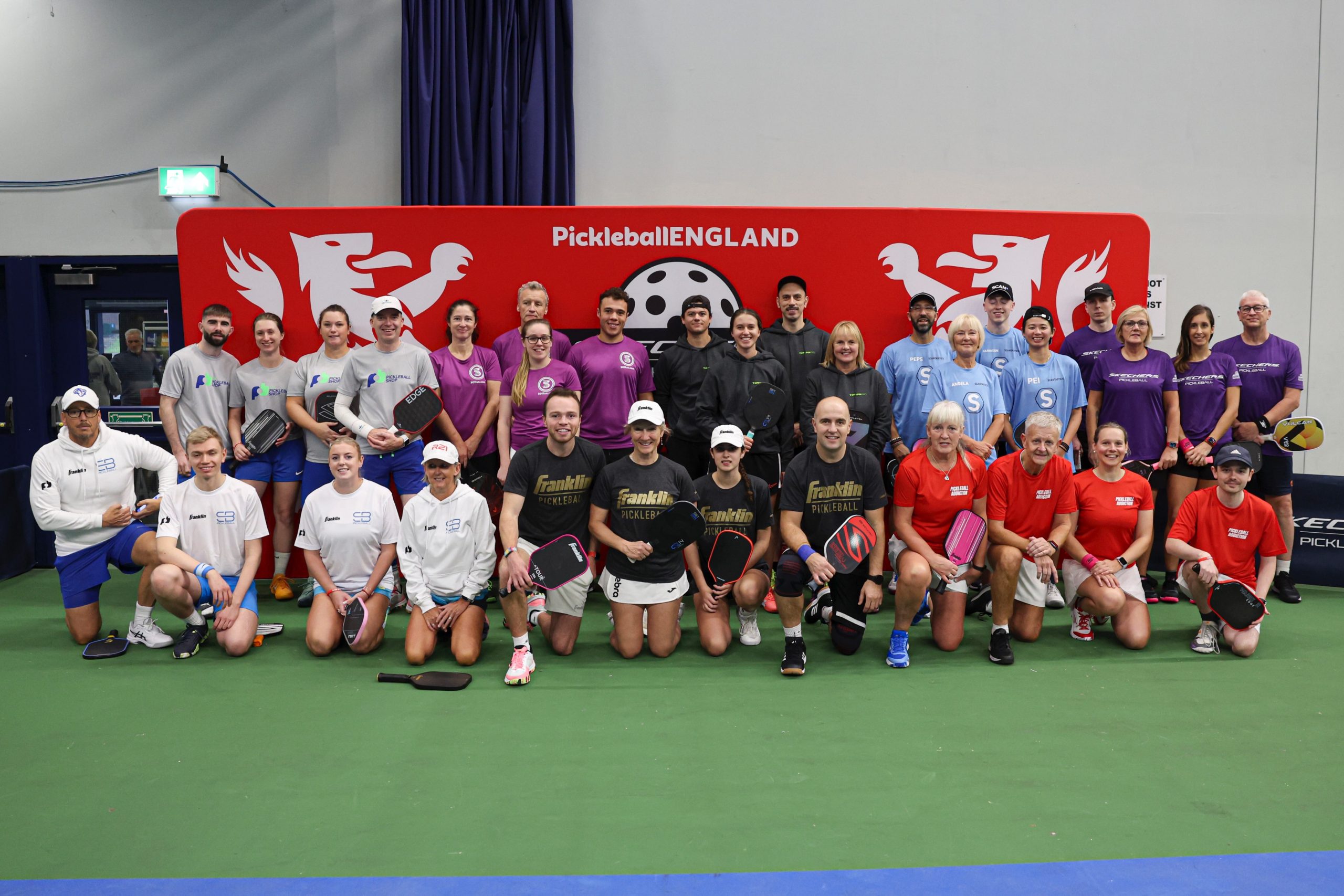
The USA’s fastest growing sport is catching on here too.
Pickleball, which originated on a badminton court with table tennis paddles in 1965, has graduated from a social activity into a competitive racket sport.
When Pickleball England was formed in 2019, there were around 2,000 casual players in the UK. Now, there are over 6,000 registered players and 15,000-20,000 people actively playing.
The Chair of Pickleball England, Karen Mitchell, said: “It is definitely getting to a tipping point where it just becomes a rolling stone that gathers lots of pace and gets bigger and bigger.
“I would say one of the nicest things about pickleball is how its intergenerational, with people of all ages socialising together.”
With the average age of registered players in England dropping from 70 to 50, the sport is clearly attracting an increasingly younger crowd.
It’s a close relative to another fast growing sport – padel tennis – and to the naked eye, it looks incredibly similar. Is there a danger they’ll take new players away from each other? Mitchell claims there are a few strings to pickleball’s paddle that set it aside from padel.
For example a pickleball newbie books onto a club session with up to 24 other people, and so it’s all organised for them, with ample opportunity to socialise while playing.
Mitchell goes on to explain that with padel you need to book your own court and find three other people, which can be quite daunting for newcomers. As Mitchell said: “The social aspect in pickleball is far greater than for padel.”
According to Mitchell, pickleball’s greatest obstacle is finding permanent homes: “Space availability and time slots are a key issue, but the great thing about pickleball is that it can be played anywhere.”
Sessions often take place in the day, when there is court availability at tennis centres, for example. This is one of the reasons why the sport attracts an older audience, as they’re more likely to be available to play.
Over the coming years, Mitchell sees the sport continuing to be housed at leisure and tennis centres, but also having their own specific pickleball centres.
The sport boomed after the English Open in Telford and a local enthusiast there built a three-court centre in a converted warehouse with demand outweighing availability.
Greater Manchester is one area to have seen a real upturn in those picking up a paddle. Mitchell said: “20% of registered players in the north west are in Greater Manchester. It’s the biggest area in the northwest and it shouldn’t be a surprise.”
The popularity of pickleball in Greater Manchester is evident in the many available venues and was a decisive factor in why the English Nationals have been held at Bolton Arena for the past two years.
The Nationals last October saw almost 700 people register to play at the event on 24 courts.
Pickleball England is now looking for a bigger venue, as the sport continues its meteoric rise.
